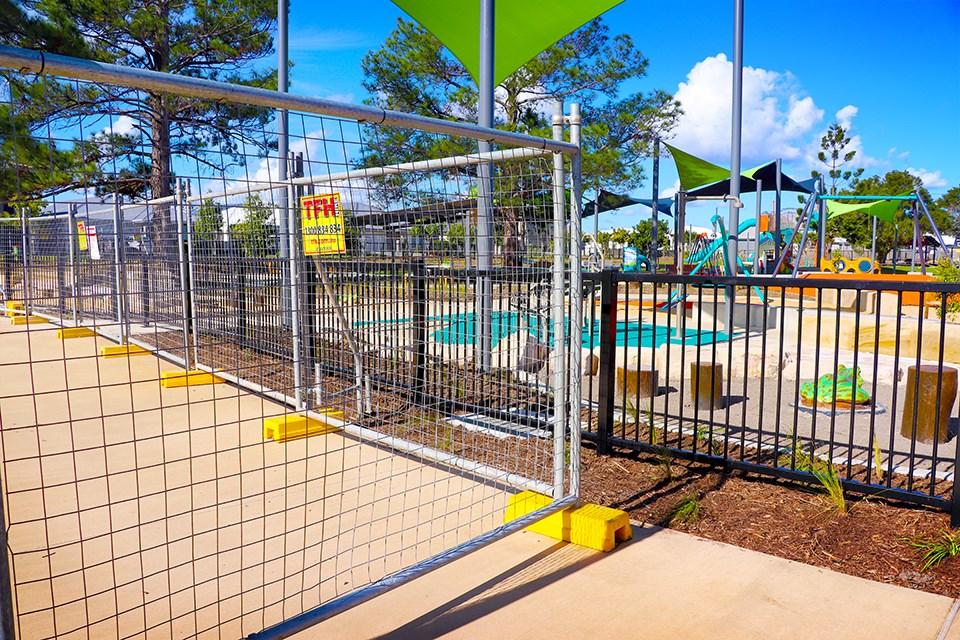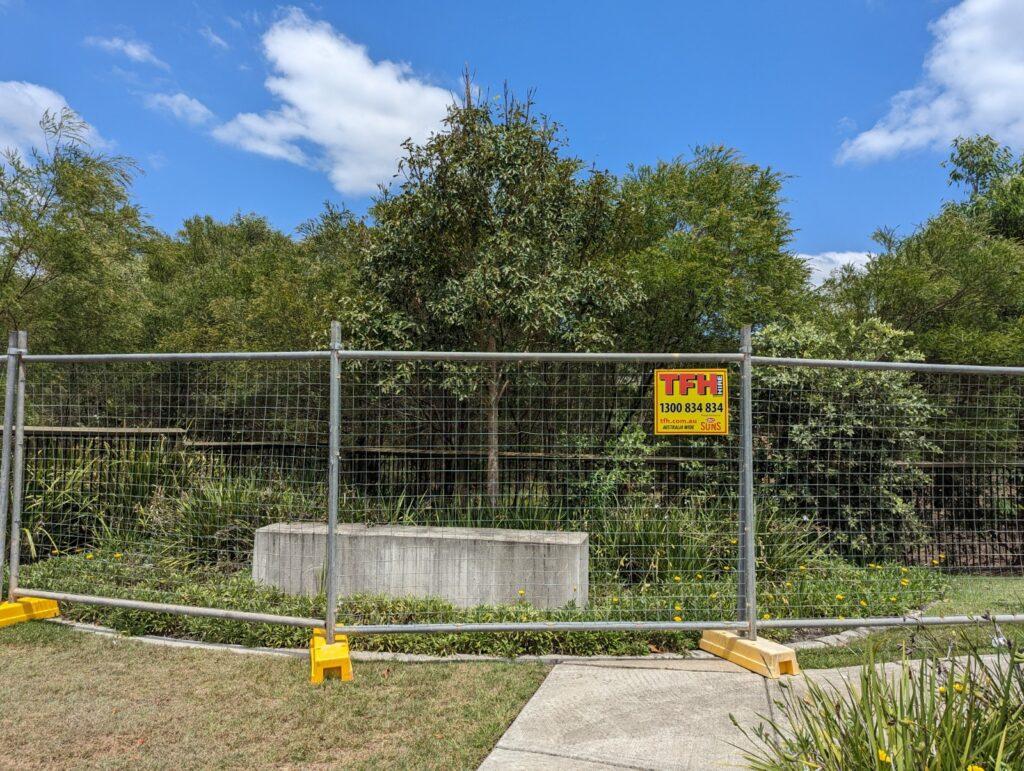Noise Suppression with Temporary Fencing: Creating Quieter, Safer Work Environments
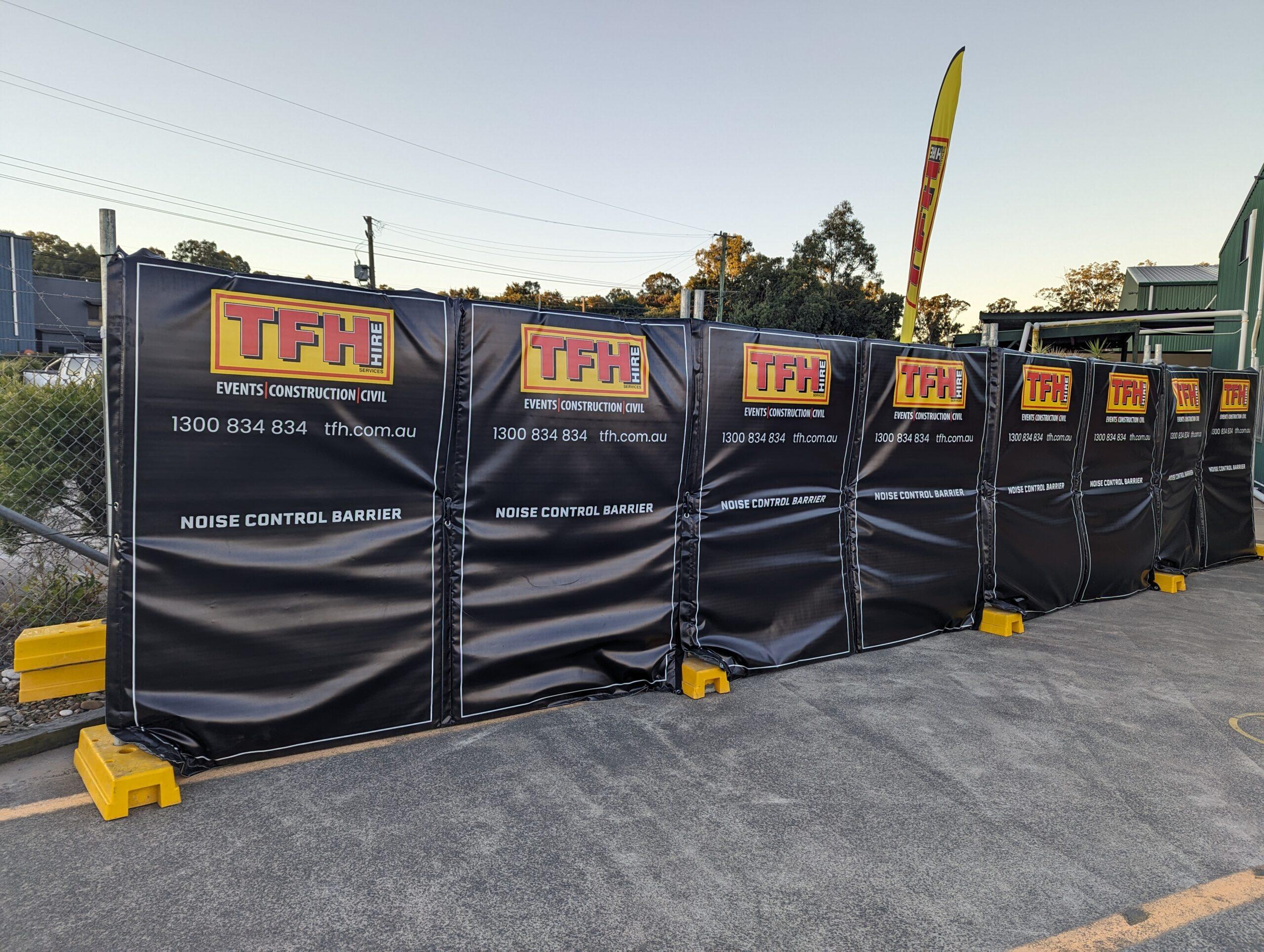
Noise pollution is a significant concern in construction and event management, impacting both the wellbeing of workers and the surrounding community. Effective noise suppression strategies are essential for compliance with regulations and for maintaining a productive, safe, and neighbour-friendly environment. Temporary fencing with noise suppression capabilities offers a practical solution to these challenges.
Understanding the Impact of Noise Pollution
Noise pollution from construction sites and large events can lead to various negative outcomes:
- Health Risks: Prolonged exposure to high noise levels can cause hearing loss, stress, and other health issues for workers. According to the Australian Government, managing noise is critical to protect worker health and reduce stress levels, which in turn improves productivity and safety on site.
- Community Disruption: Excessive noise can disturb residents and businesses nearby, leading to complaints and potential legal issues. Studies have shown that noise complaints are a common issue in urban areas, significantly affecting community well-being and relations.
- Regulatory Compliance: Construction and event managers must adhere to local noise ordinances and regulations to avoid fines and project delays. Effective noise management strategies are essential for staying compliant with these regulations.
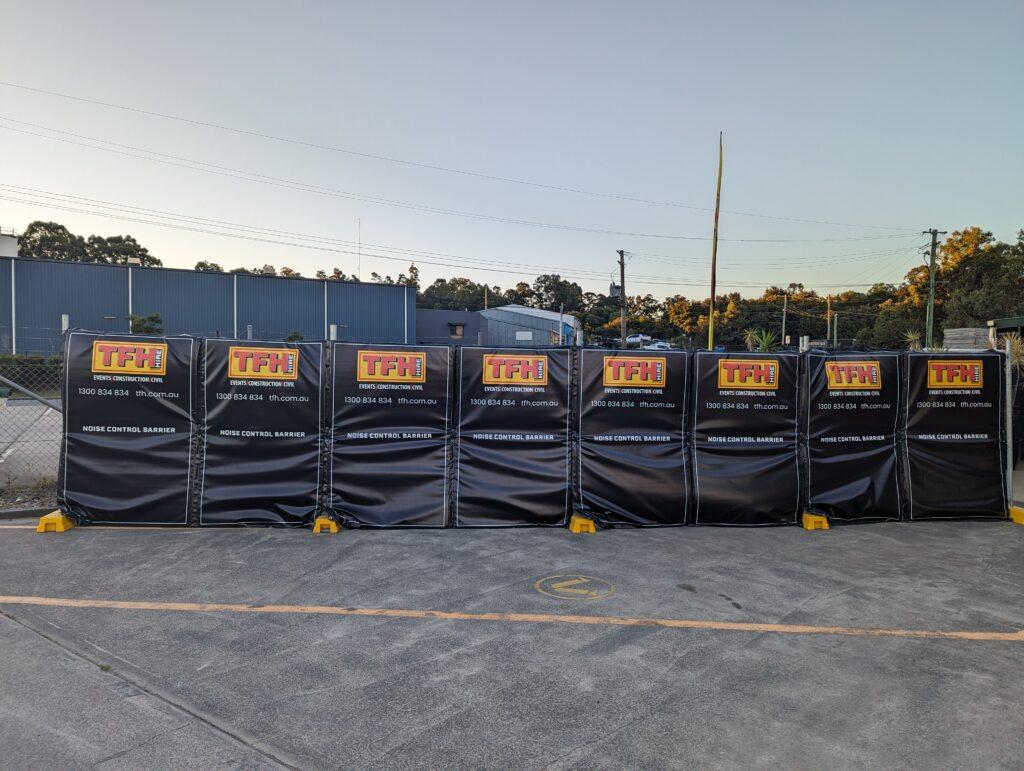
Benefits of Noise Suppression Fencing
Temporary fencing equipped with noise suppression features provides several benefits:
- Reduction in Noise Levels: These fences are designed to absorb and deflect sound waves, significantly reducing the noise that escapes from the site.
- Enhanced Worker Safety: Lower noise levels contribute to a safer work environment by reducing the risk of hearing damage and improving overall working conditions.
- Improved Community Relations: Effective noise suppression helps maintain good relations with nearby residents and businesses, reducing complaints and fostering a positive community image.
TFH Noise Suppression Solutions
TFH offers advanced noise suppression solutions that integrate seamlessly with their temporary fencing systems. Here’s how TFH’s noise suppression fencing can benefit your project:
- Noise Reduction Barriers: These barriers are specially designed to mitigate noise pollution. They are easy to install and highly effective in reducing sound levels from construction sites and events.
- Customisable Options: Depending on the specific needs of your project, TFH can provide customised noise suppression solutions that fit your site layout and operational requirements.
- Durable and Reusable: TFH’s noise suppression fences are made from durable materials that withstand the rigours of construction environments and can be reused for multiple projects, offering a cost-effective solution.
Implementing Noise Suppression
To implement noise suppression effectively, consider the following steps:
- Assessment: Conduct a noise assessment to determine the sources and levels of noise pollution on your site. This can involve measuring decibel levels and identifying the main sources of noise.
- Planning: Develop a noise management plan that includes the strategic placement of noise suppression barriers. This plan should address how to minimise noise at its source and how to protect workers and the public.
- Installation: Ensure that the noise suppression fences are properly installed and maintained throughout the project duration. TFH’s noise reduction barriers are designed for easy installation and minimal maintenance.
- Monitoring: Continuously monitor noise levels to ensure compliance with regulations and to adjust strategies as needed. This can involve regular checks and updates to the noise management plan based on ongoing assessments.
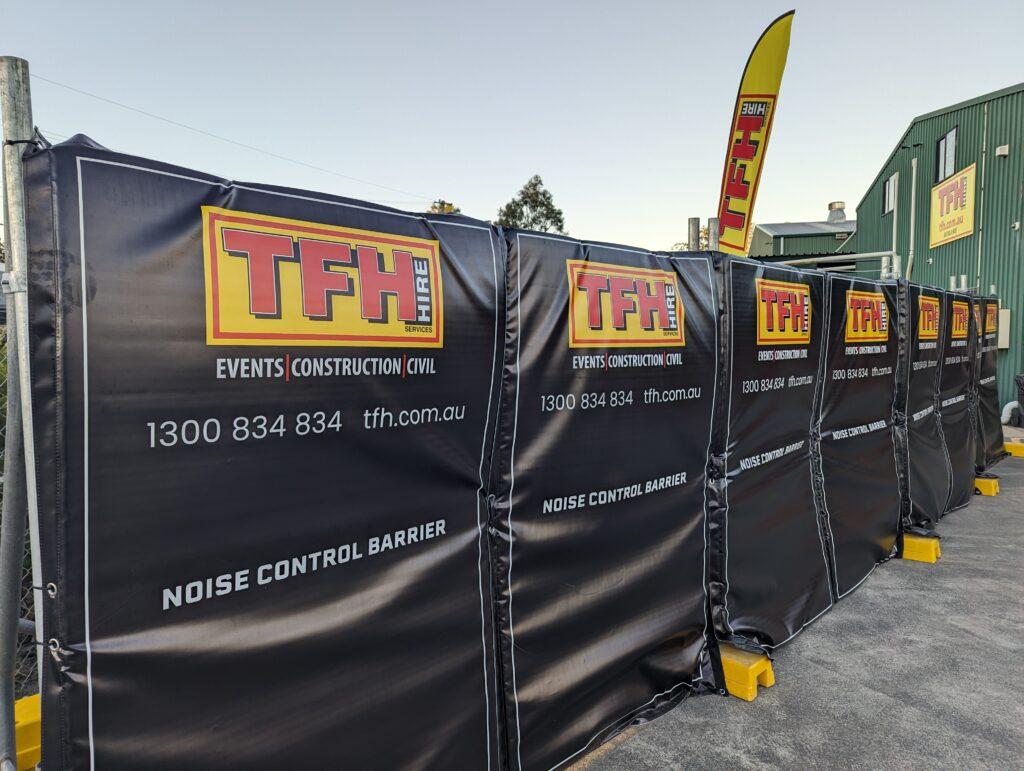
Understanding Noise Complaints and Compliance
Noise pollution is a significant issue for construction sites, impacting both workers and nearby communities. Proper noise management not only ensures a better working environment but also helps maintain good relations with the local community and complies with legal standards.
The Legal Framework for Noise Control
In Australia, noise control for construction sites is regulated under various local and national laws. One key piece of legislation is the Environmental Protection Act 1994, specifically section 440R, which addresses building work noise standards. According to this act, construction activities causing audible noise are restricted to specific hours—typically between 6:30 am and 6:30 pm on business days and Saturdays. Work outside these hours is only permissible if it does not produce audible noise at affected buildings.
Local councils are usually responsible for enforcing these noise standards, although state or local government entities may also play a role, especially for projects conducted by government-owned corporations or as part of environmentally relevant activities.
Common Issues and Community Complaints
Noise from construction sites often leads to complaints from residents and businesses in the vicinity. These complaints typically focus on:
- Excessive Noise Levels: High decibel levels can disturb daily activities, cause stress, and even lead to health issues such as hearing loss.
- Timing of Noisy Activities: Construction work outside permitted hours is a frequent cause of complaints, disrupting the peace during early mornings, late evenings, and weekends.
Studies have shown that unmanaged noise pollution can significantly impact community well-being, leading to increased stress levels and potential legal actions against construction companies.
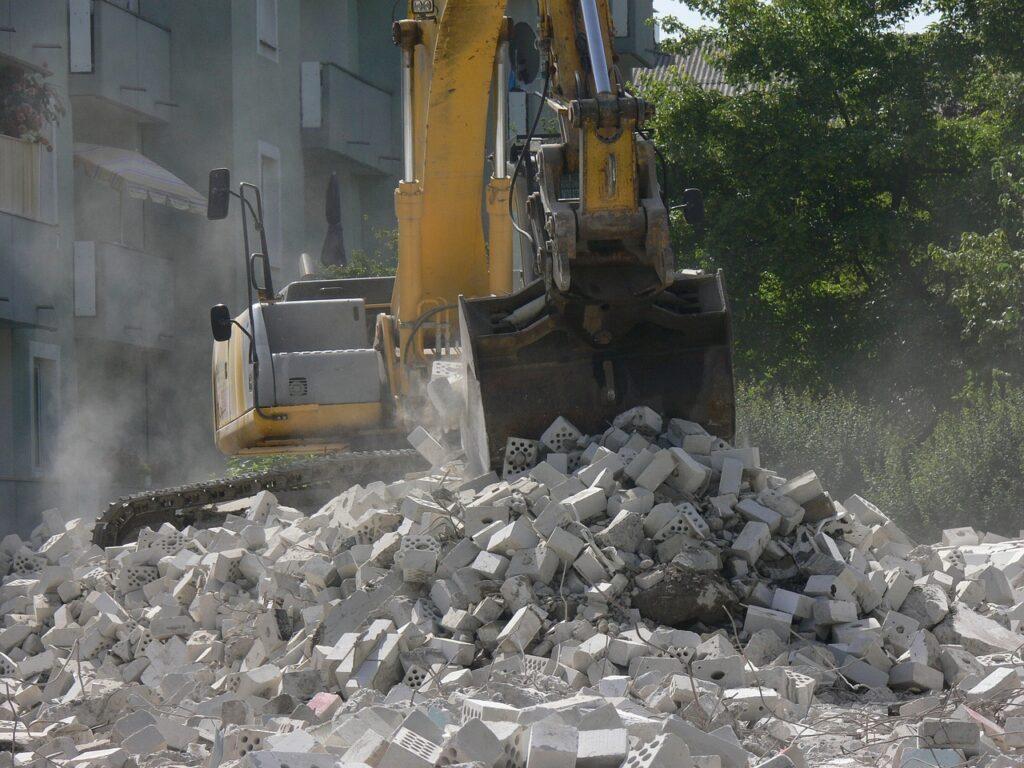
Implementing Noise Suppression Solutions
To address these challenges, construction companies can implement several noise suppression strategies:
- Use of Noise Suppression Barriers: Installing barriers like those offered by TFH can effectively reduce noise levels. These barriers are designed to absorb and deflect sound waves, minimising the noise that escapes the construction site.
- Strategic Planning and Scheduling: Plan noisy activities during the designated hours to avoid violating noise regulations. Schedule quieter tasks outside these hours to maintain productivity without disturbing the community.
- Continuous Monitoring: Regularly monitor noise levels to ensure compliance with legal standards and to identify any activities that might need further noise mitigation measures.
Benefits of TFH Noise Suppression Fencing
TFH’s noise suppression fencing provides an effective solution to manage construction site noise:
- High Noise Reduction: These barriers significantly lower noise levels, protecting workers’ hearing and reducing disturbance to nearby residents.
- Durability and Reusability: Made from robust materials, TFH’s barriers are designed to withstand harsh construction environments and can be reused across multiple projects.
- Customisable Solutions: TFH offers customisable noise suppression barriers that can be tailored to fit the specific needs and layout of any construction site.
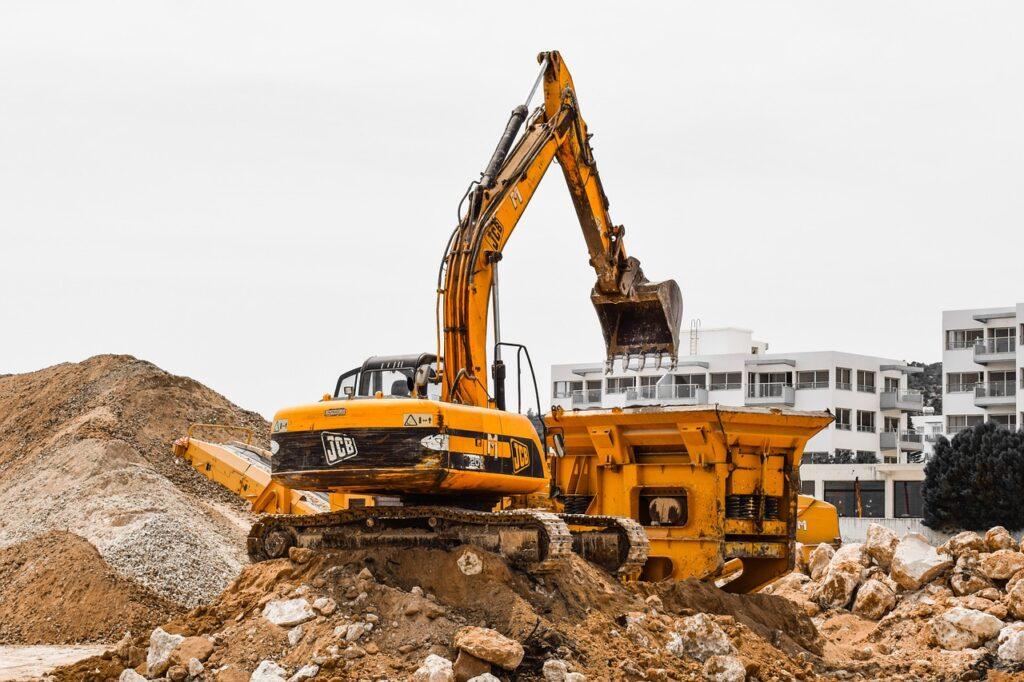
Navigating Noise Complaints and Restrictions
In Brisbane and many other jurisdictions, noise restrictions for construction work are strictly regulated to protect community well-being and maintain a peaceful living environment. Understanding and adhering to these regulations is crucial for construction companies to avoid penalties and foster good community relations.
Noise Restrictions Overview
According to Brisbane City Council, building work that generates noise is only permitted during certain hours:
- Weekdays: 6:30 am to 6:30 pm
- Saturdays: 6:30 am to 6:30 pm
- Sundays and Public Holidays: No work generating audible noise is permitted
These restrictions aim to minimise disturbances to residents and businesses, ensuring that construction noise does not negatively impact their daily activities and quality of life.
Handling Noise Complaints
When a noise complaint is lodged, it typically follows a process of assessment and enforcement:
- Initial Assessment: Authorities, often the local council, assess the noise levels and determine whether they exceed permissible limits during the restricted hours.
- Enforcement Actions: If the noise levels are found to be in violation, the responsible party may receive a warning or be subject to fines and enforcement actions to ensure compliance.
Construction companies are encouraged to take proactive measures to prevent noise complaints by adhering to noise restrictions and implementing effective noise suppression strategies.
Effective Noise Management Practices
To comply with noise restrictions and minimise complaints, consider the following practices:
- Utilise Noise Reduction Barriers: Installing barriers such as TFH’s noise suppression fencing can significantly reduce the transmission of noise beyond the construction site.
- Plan Noisy Activities During Permitted Hours: Schedule the most disruptive activities within the allowed times to ensure compliance and reduce the likelihood of complaints.
- Engage with the Community: Inform nearby residents and businesses about upcoming noisy activities and expected timelines. Open communication can build understanding and reduce frustration.
Benefits of Proactive Noise Management
Proactively managing construction noise not only helps in complying with legal requirements but also:
- Enhances Community Relations: By respecting noise restrictions and addressing complaints promptly, construction companies can foster better relationships with the community.
- Reduces Legal Risks: Adhering to noise regulations helps avoid fines and legal actions that can arise from non-compliance.
- Promotes Worker Well-being: Lower noise levels contribute to a safer and more comfortable working environment, improving overall productivity and job satisfaction.
For more detailed information on noise restrictions and how to handle noise complaints, visit the Brisbane City Council’s Noise Restrictions and Complaints page.
By integrating these practices and leveraging TFH’s advanced noise suppression solutions, construction companies can effectively manage noise pollution, ensuring compliance with regulations and maintaining a positive community presence.
Conclusion
Incorporating noise suppression fencing into your project not only helps in complying with regulations but also enhances the safety and wellbeing of workers and the community. With TFH’s noise suppression solutions, you can effectively manage noise pollution, ensuring a quieter and more harmonious work environment. For more information on TFH’s noise suppression fencing and other innovative temporary fencing solutions, visit TFH’s official website or contact their expert team.
By prioritising noise control, construction and event managers can mitigate the adverse effects of noise pollution, leading to more successful and community-friendly projects.


